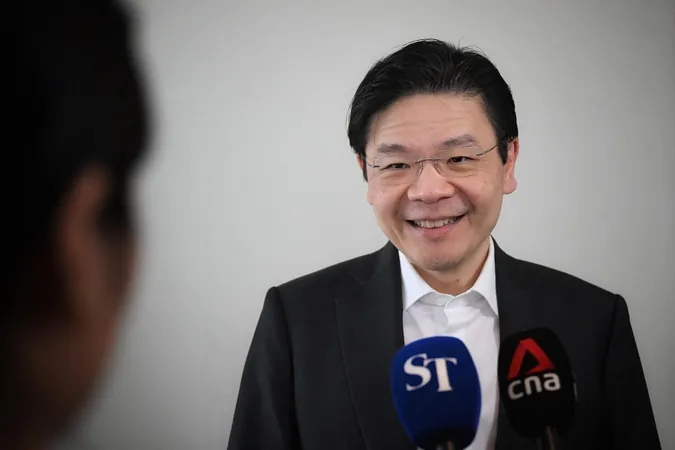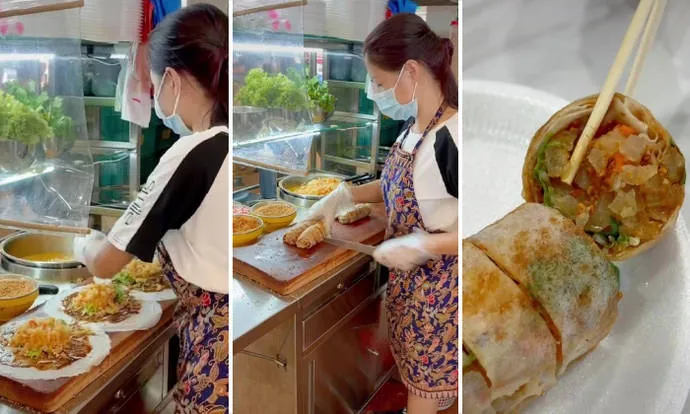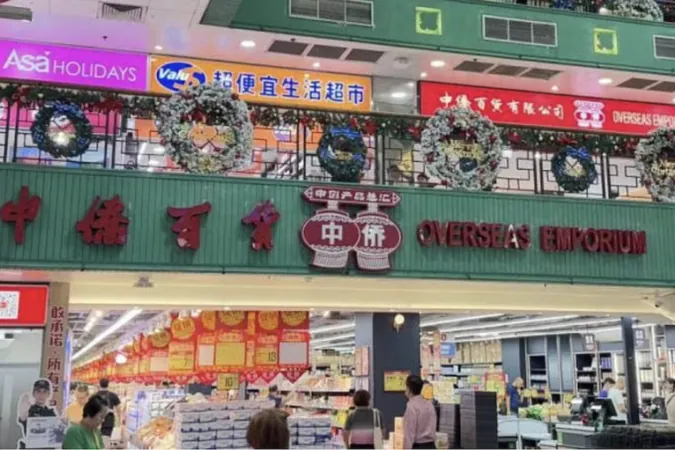
Singapore to Host Apec Summit in 2030: A Strategic Move Amid Global Challenges
2024-11-17
Author: John Tan
Singapore to Host Apec Summit in 2030
In a bold announcement, Singapore has stepped forward to host the Asia-Pacific Economic Cooperation (Apec) summit in 2030, a decision revealed by Prime Minister Lawrence Wong on November 16. This initiative is part of Singapore's commitment to fostering inclusive growth amidst escalating geopolitical tensions and a faltering faith in free trade.
Prime Minister Wong emphasized the significance of Apec as a vital platform for economic dialogue and cooperation. "We find Apec to be very valuable, and we will do our part to support Apec in various ways, including hosting its summits," he stated at the conclusion of this year's summit held in Lima, Peru. This marks Singapore's return to the Apec summit circuit after previously hosting in 2009.
The upcoming Apec summits are slated for South Korea in 2025, China in 2026, and Vietnam in 2027, highlighting a dynamic roster of host nations. PM Wong articulated concerns voiced during the Lima summit regarding the waning support for globalization and free trade, elements that are seen differently across Apec member economies.
"There is a growing perception that the benefits of free trade have not been equitably distributed," Wong remarked, urging leaders to resist the temptation to erect barriers and instead focus on strengthening trade ties and ensuring that economic growth benefits all segments of society.
The unified stance of Apec economies was further reiterated in the joint declaration at the summit's close, which underscored their commitment to a rules-based multilateral trading system, centered around the World Trade Organization. Leaders emphasized the importance of maintaining an open and inclusive trade environment despite the diverse economic constraints faced by member nations.
PM Wong noted the challenges ahead but was optimistic about the path forward, stating, "We acknowledge that not all countries can progress at the same pace. Therefore, we will strive to align with like-minded economies that are ready to move forward."
Moreover, the Apec forum serves not merely as a trade platform but also as a seedbed for innovative ideas, particularly in fields like supply chain management, the digital economy, and sustainability. As a small, open economy, Singapore has historically played a pioneering role in Apec initiatives, such as the P4 free trade agreement established in 2005 with Brunei, Chile, and New Zealand.
In a groundbreaking new effort, Singapore has collaborated with Chile and New Zealand on green economy trade, establishing a working group to explore regulations and standards for low-carbon initiatives. "If successful, this initiative could evolve into a broader international framework," Wong elaborated.
On the global stage, Wong expressed hopes for stabilizing US-China relations under the incoming Trump administration, despite acknowledging the current climate of mutual distrust. He pointed to the importance of maintaining communication on sensitive issues such as Taiwan and the South China Sea to avoid escalation.
Looking ahead, Wong's schedule is packed as he heads to the Group of 20 (G-20) summit in Rio de Janeiro from November 17 to 20, where discussions will likely center around pressing issues, including political conflicts in the Middle East and Ukraine. With prominent leaders like outgoing President Joe Biden and President Xi Jinping expected to attend, the outcomes of this summit will be crucial for shaping future international relations.
As Singapore prepares to take the lead in 2030, the global community watches closely, hopeful that new alliances and frameworks will emerge to counter the prevailing challenges of our time.



 Brasil (PT)
Brasil (PT)
 Canada (EN)
Canada (EN)
 Chile (ES)
Chile (ES)
 España (ES)
España (ES)
 France (FR)
France (FR)
 Hong Kong (EN)
Hong Kong (EN)
 Italia (IT)
Italia (IT)
 日本 (JA)
日本 (JA)
 Magyarország (HU)
Magyarország (HU)
 Norge (NO)
Norge (NO)
 Polska (PL)
Polska (PL)
 Schweiz (DE)
Schweiz (DE)
 Singapore (EN)
Singapore (EN)
 Sverige (SV)
Sverige (SV)
 Suomi (FI)
Suomi (FI)
 Türkiye (TR)
Türkiye (TR)